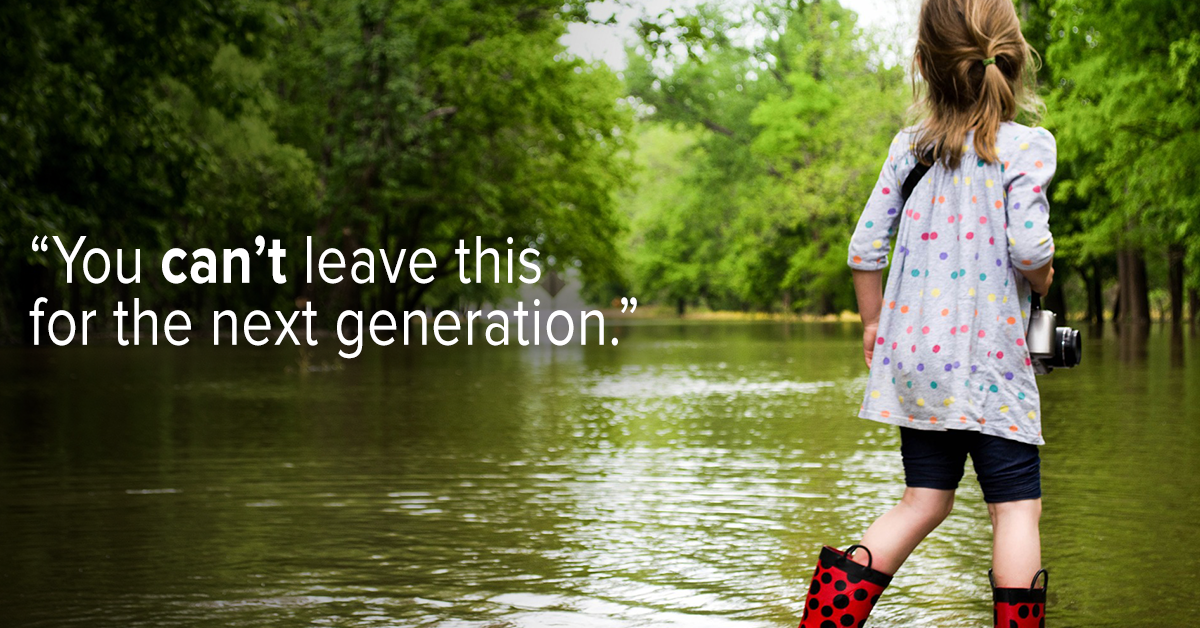Betsy Marville remembers when the Cuyahoga River in Ohio caught on fire in 1969 due to oil and debris floating at the surface. She also recounts laughing with her mother and grandmother – who lived during the Great Depression – the first time water was sold in bottles.
“Now, you wouldn’t drink tap water without a filter,” says Marville. As a nurse who lives in West Palm Beach, Fla., access to clean and safe water in her community is top of mind.
Marville is the nurse organizer for 1199 Service Employees International Union (SEIU) - United Healthcare Workers East (UHWE) in Florida and says the environment has always been a priority for the union.
Her nursing union represents more than 26,000 health care providers in 27 hospitals and 80 nursing homes. As a nurse organizer, Marville’s primary role involves educating nurses about pertinent issues related to their work. For Marville, that includes climate change.
“I know we [SEIU] have big issues... staffing, benefits… there’s no other issue if we don’t have water to drink, air to breathe, and a place to stay,” she says.
Marville is just beginning to find ways to educate nurses about health, environmental, economic and structural challenges associated with a changing climate. For the health care sector, she notes, climate change impacts far more than individual patient health. South Florida is in dire straits, she says. “If we go under water, hospitals are gone.”
When asked why she thinks nurses are such powerful advocates and educators with colleagues and patients, Marville said, “We just won the Gallup poll again.” For the 17th year in a row, nurses have been ranked as the most trusted profession in the United States by Gallup.
“When you have that kind of clout, you need to use it,” she added.
In her first educational session with the Nurses Climate Challenge, Marville presented to the Palm Beach-St. Lucie Regional Delegate’s Assembly of 1199 SEIU Florida. She used local examples of climate change effects like blue-green algae and Red Tide. Marville says oceanic disasters were nothing new to the Floridian audience, who are facing the potential threat of aquifers contaminated by rising sea water. Florida emergency departments have also experienced an increase in admissions due to neurotoxic events during Red Tides, not to mention hurricanes.
She highlighted how 8 million people in South Florida are at risk of not being able to evacuate because of limitations in gasoline and resources. As a Nurse Climate Champion, Marville gained access to resources to support the connection between climate change and related health challenges in her area.
And she realized she needed to share the information with her audience in a way that instilled hope – as explained in the Talking Tips and Strategies for Having Tough Conversations resource provided by the Nurses Climate Challenge.
“How do we present this information without scaring them?” Marville says. “Give them something to do!”
Relying on clinical reasoning, she teaches about climate action in a standardized format that nurses are familiar with. She says making a “plan of action” is no different than making a care plan, which she says is something that nurses and health care professionals do “all the time.”
Marville remembers the first Earth Day in 1970, which was partially in response to the Cuyahoga River fire. She notes that she now sees “a lot of people working really hard… who are trying to do the right thing,” but emphasizes “if you’re not scared, you don’t understand it.” For her, this natural connection between climate change as a health issue and a deep commitment to the health of others bolsters her momentum.
“You can’t leave this for the next generation. You would never leave your children or your grandchildren a mess in your house,” Marville says. “You would try to do everything for their success. This is something you have to do for them.”
Betsy Marville lives in West Palm Beach, Fla., with her cat Alice. She enjoys visiting family throughout the United States, as well as travel opportunities through her role with the union.
JOIN THE NURSES CLIMATE CHALLENGE
